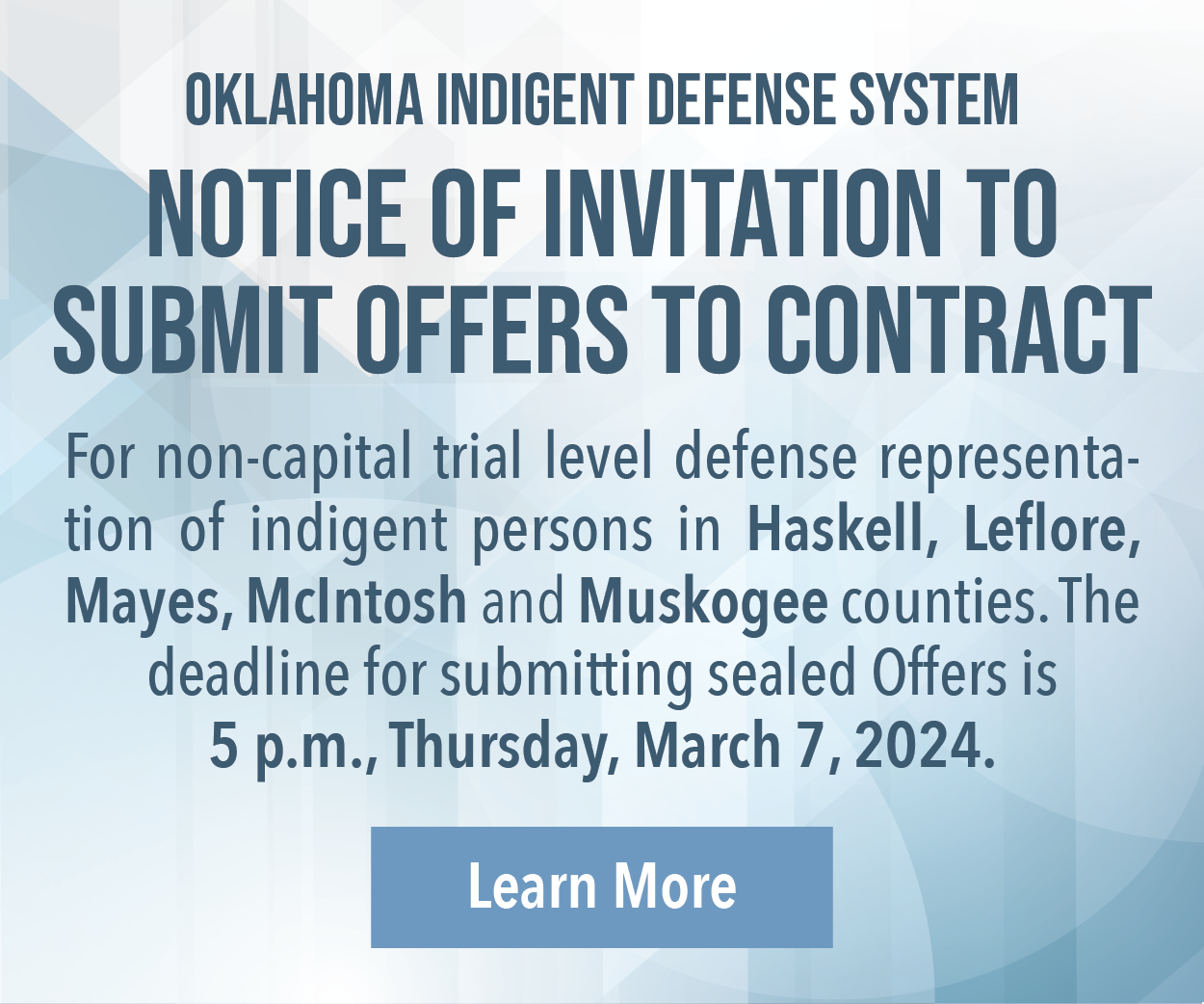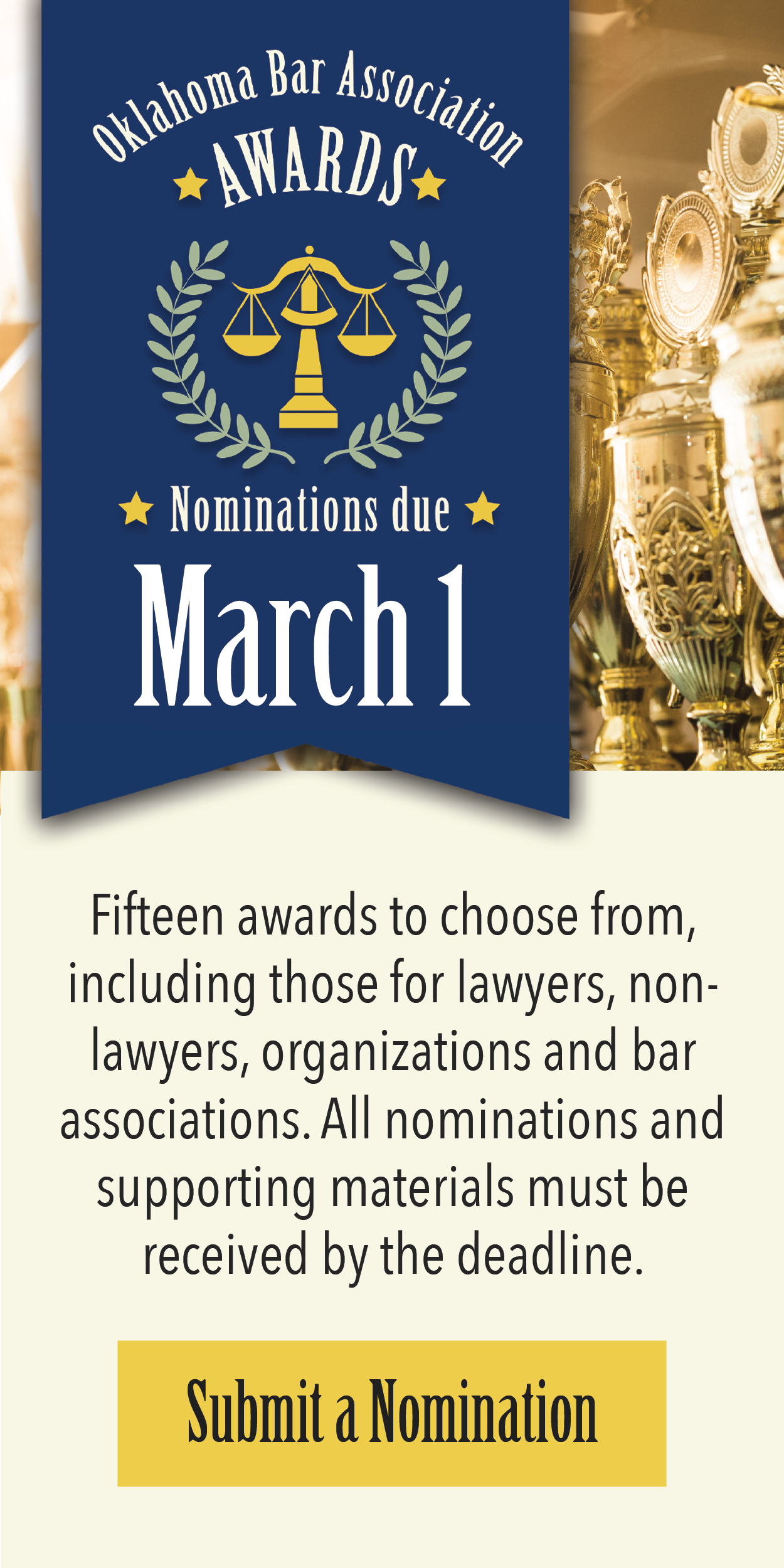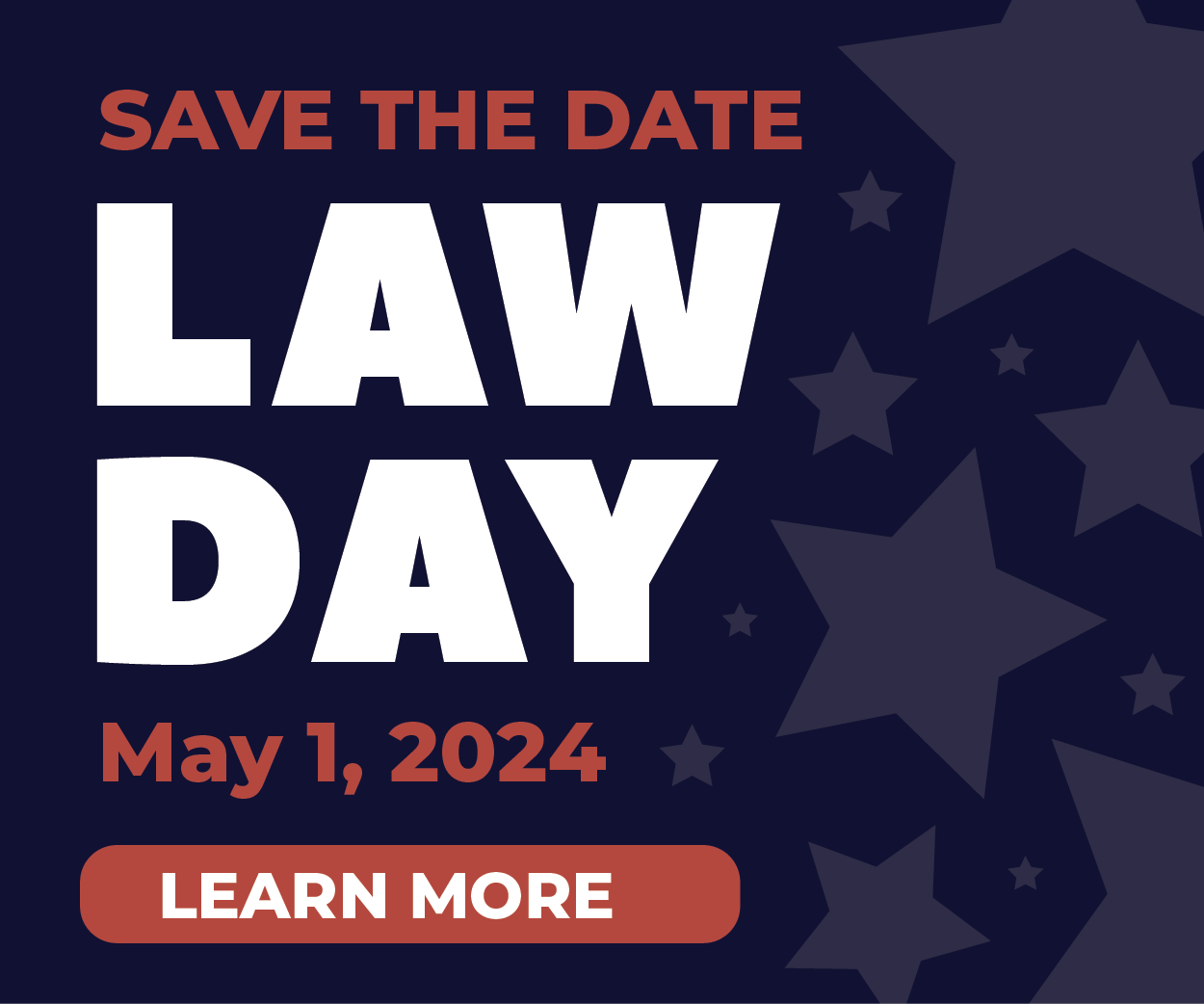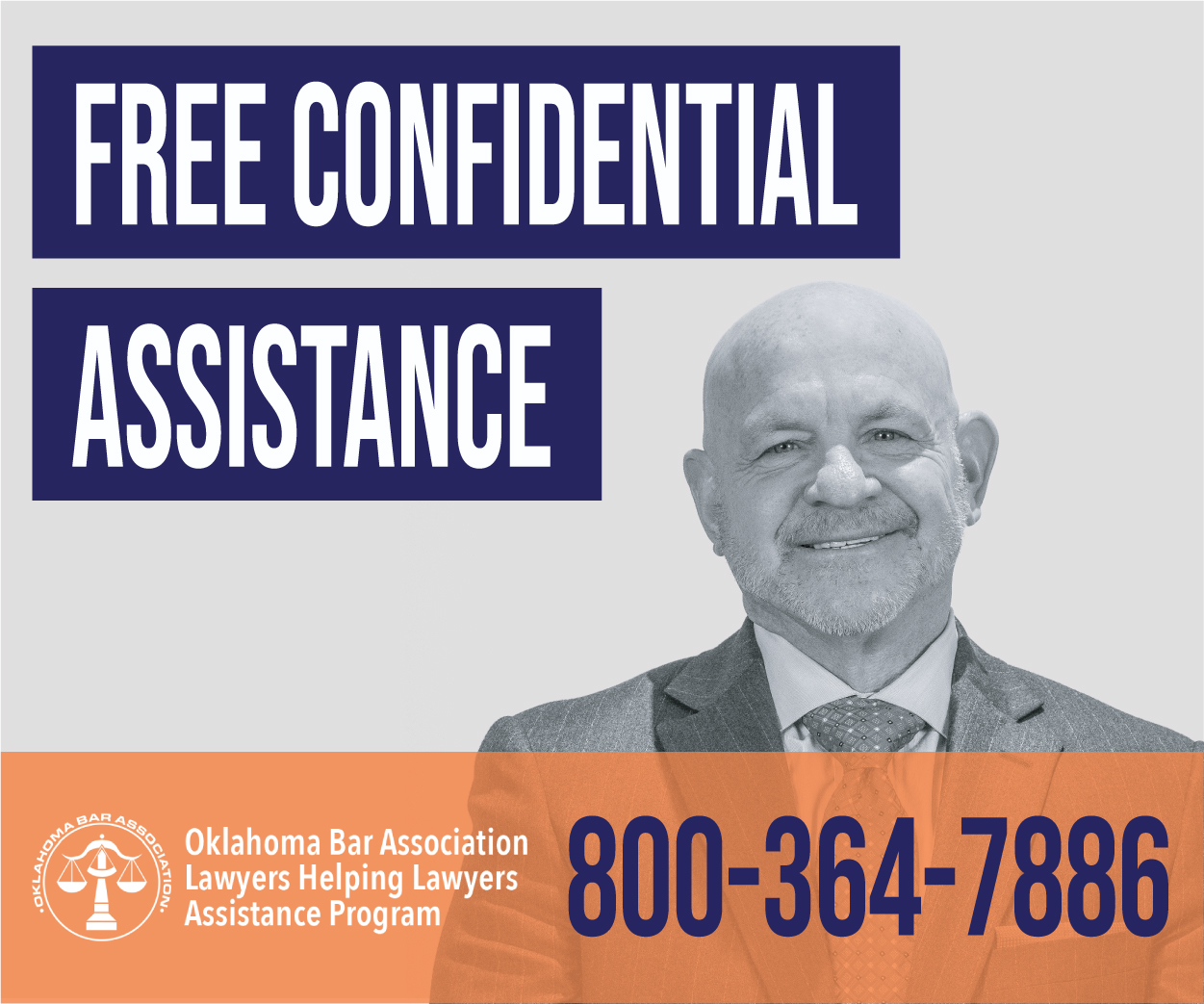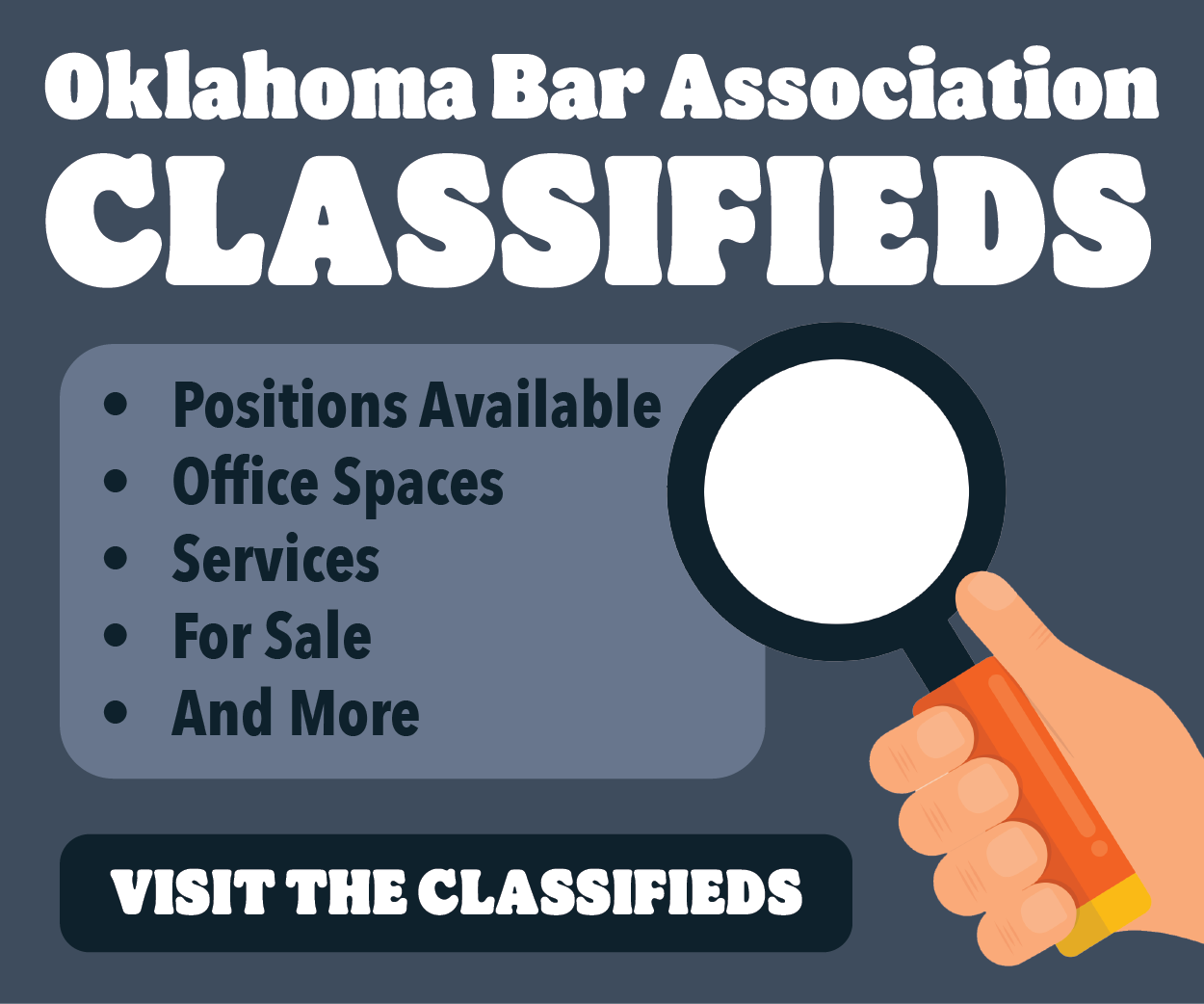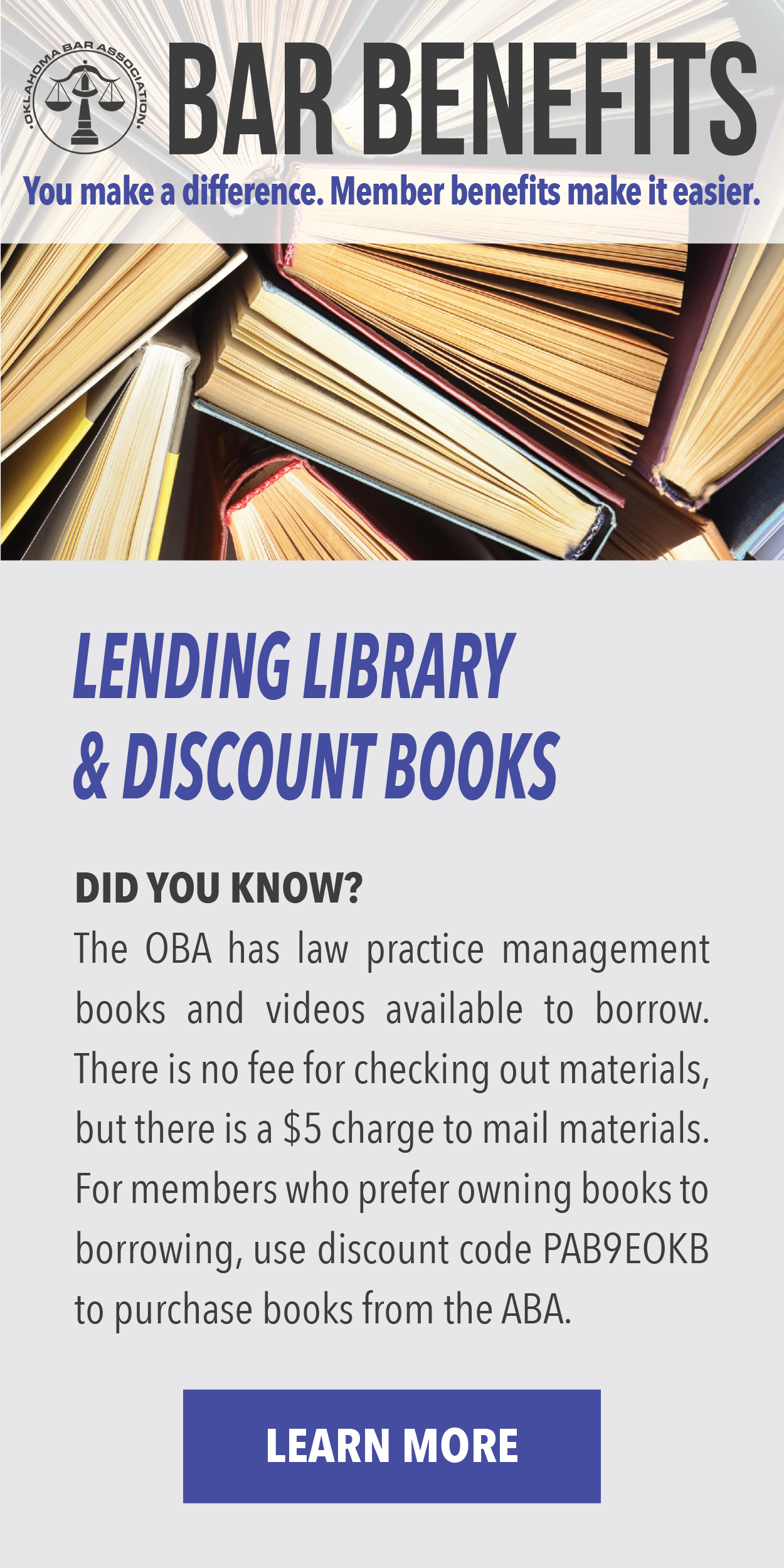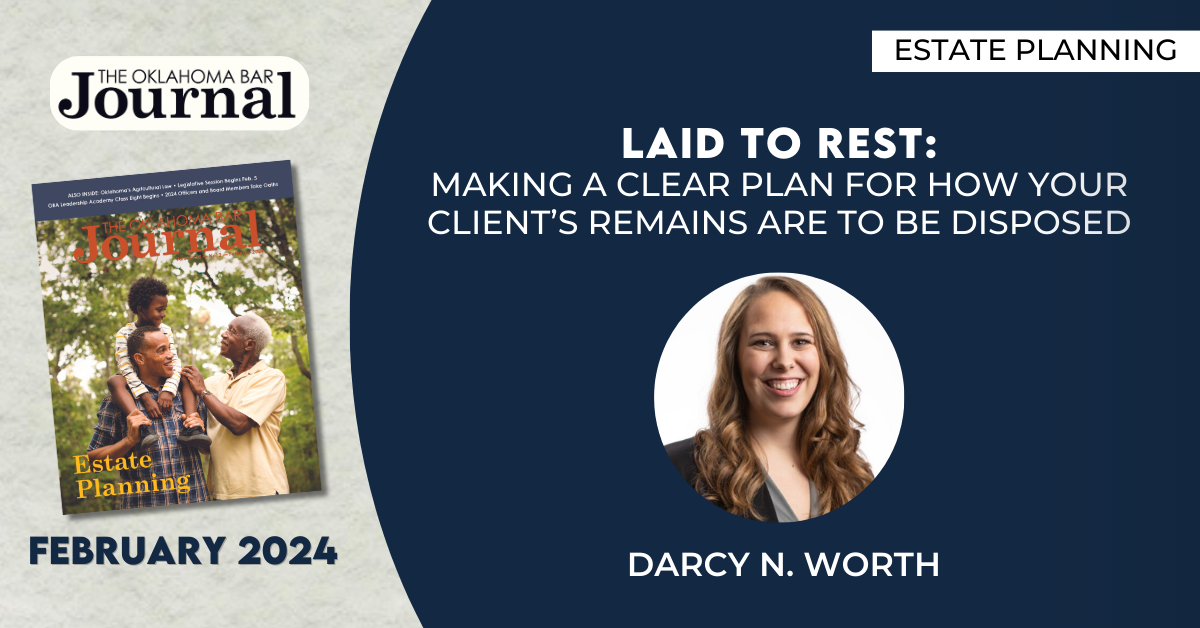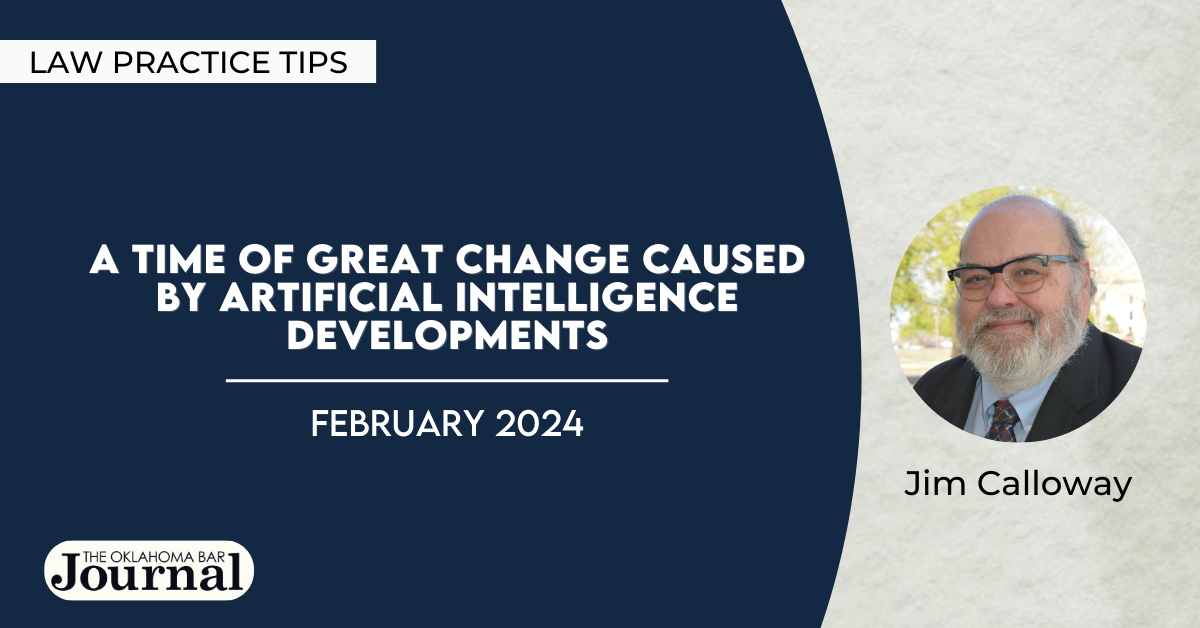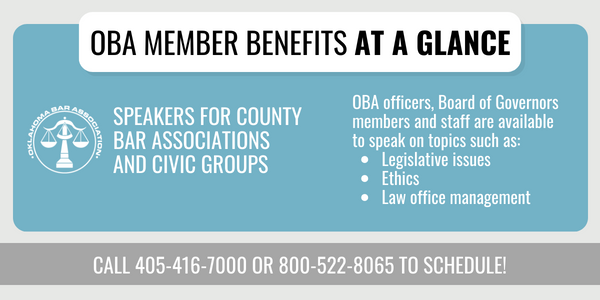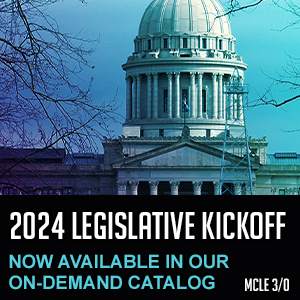Courts
- 2024 OK 8: WILLIAMS v. WILLIAMS
- 2024 OK 9: PREWITT v. QUIKTRIP CORPORATION
No published opinions this week.
No published opinions this week.
Dispositions Other than by Published Opinions
The Supreme Court of Oklahoma Court Calendar
The Supreme Court of Oklahoma is in session year round, unless otherwise noted. The court regularly schedules conferences on Mondays and other days as needed.
Member Transitions
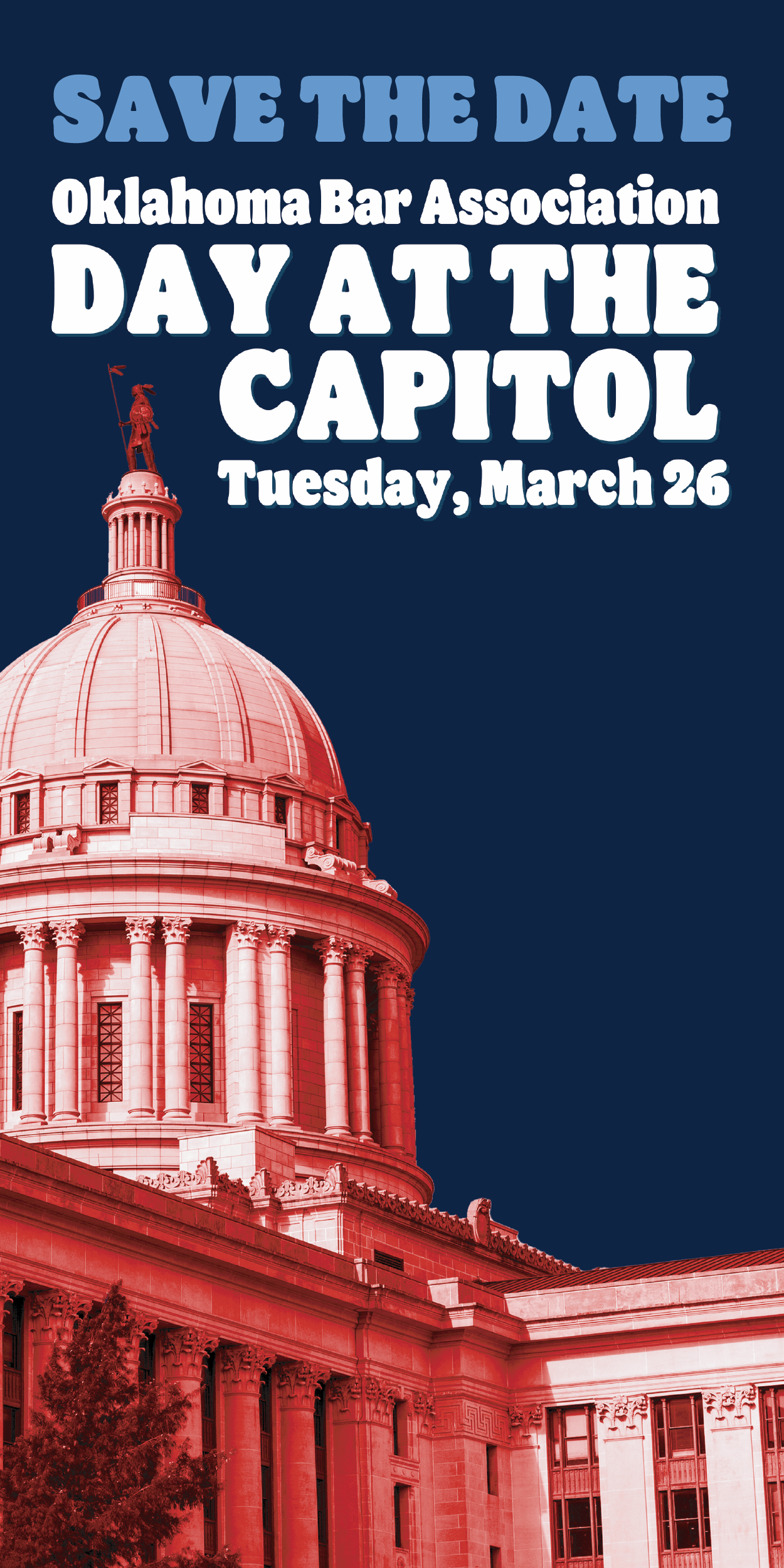
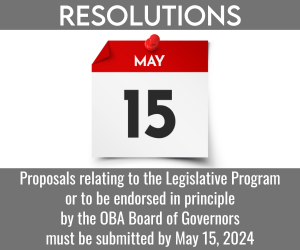
More
For several decades, the OBA has proudly recognized lawyers who represent the best of the best in the legal profession and law-related organizations that support our members and communities. The OBA Awards Committee invites you to review the list of OBA Awards and join in the effort to identify individuals and entities to honor during the 2024 Annual Meeting in July.
"The goal of a client’s estate plan should be to leave a roadmap, not a mess, for their loved ones after they are gone. Traditional estate plans include rules for the treatment and disposition of a person’s money, real estate and physical property. One thing often missing from estate plans is a form that allows the client to indicate how they want their remains to be treated after they are gone. Such a form would avoid disputes surrounding the treatment of a person’s remains and give a clear path to the survivors over how to honor a person once they have passed. These types of disputes are becoming more of a regular occurrence after people’s deaths – creating a frenzy of fighting over what to do, leading to increased pain and cost after a loved one has died."
"'As lawyers and judges, the temptation to view AI as a distant, abstract concept may be strong. However, it’s crucial to acknowledge that AI is not just a passing fad. We must recognize that the genie is out of the bottle and that AI will reshape the landscape of numerous industries, including our own, over the next few years. Microsoft’s addition of an AI button to its keyboard is a testament to the increasing integration of AI in everyday tools, heralding a future where AI’s presence is ubiquitous.
For the legal profession, this evolution brings both challenges and opportunities. The shift towards AI-enhanced tools is not just about adopting new technologies; it’s about fundamentally rethinking how we approach our work. AI has the potential to make the justice system more efficient, effective, and accessible, but it requires us to be proactive learners so we can understand its capabilities and limitations. We cannot bury our heads in the sand.'
Anyone interested in how technology can be used in the judicial system should subscribe to Judge Schlegel’s Substack account to receive his posts by email. Despite the well-publicized ethical issues by lawyers who used AI to draft briefs without attempting to read the cases it quoted (which did not exist), AI will reshape many things in society, including the legal profession and the legal system."
"Lawyers have generally had a limited duty to self-report ethics violations, but a recent Oklahoma Supreme Court case expands that duty. In State Ex Rel. Oklahoma Bar Association v. Reedy, the court found an implicit duty to self-report in certain instances.
THE DUTY TO SELF-REPORT UNDER THE ORPC
In the Oklahoma Rules of Professional Conduct, there is no explicit duty to self-report violations of the ethics rules. ORPC 8.3 (a) provides:
A lawyer who knows that another lawyer has committed a violation of the Rules of Professional Conduct that raises a substantial question as to that lawyer's honesty, trustworthiness, or fitness as a lawyer in other respects, shall inform the appropriate professional authority.
Section (c) of 8.3 excepts confidential information from mandatory disclosure. Section (d) exempts information learned by lawyers working as OBA ethics counsel, an agent of lawyers or judges assistance programs or the OBA Management Assistance Program. Section (d) provides further:
Any such knowledge or evidence received by lawyers acting in such capacity shall enjoy the same confidence as information protected by the attorney-client privilege under applicable rule and Rule 1.6."
The eighth class of the OBA Leadership Academy is officially underway after its members met for the first time in January. Over the course of this year, these program participants will become equipped with the skills and connections to become leaders within the bar as well as their local communities.
The 16 members of the class were selected for their demonstrated commitment to the profession and community impact. Through this program, which originated from the OBA’s Leadership Conference in 2007, participants will learn about OBA governance, special considerations for attorneys in public service, networking skills and effective communication.
“Leadership is a talent that needs to be honed and developed,” said Gigi McCormick, director of OBA Educational Programs. “As attorneys, we often find ourselves in leadership positions, either because of our own goals and ambitions or because of the public’s perception that attorneys inherently make good leaders. The future of our association and our state depends on the intentional development of these talents.”
OBA officers, Board of Governors members and staff are available to speak at luncheons and banquets on a variety of topics, including ethics, law office management and law practice tips. Call the OBA at 405-416-7000 or 800-522-8065 to schedule.
Featured CLE
By OBA MAP Director Jim Calloway

Lawyers often have to deliver difficult messages. Whether it is informing a client of a negative outcome or responding to opposing counsel’s paltry settlement offer, lawyers must deliver plain and direct communications. Gerry Riskin of Edge International reminds us that our lawyer direct language approach is not always the best approach when doing staff evaluations. His post "Avoiding Negative Reactions to Constructive Feedback" outlines some of the challenges and also links to a recent article on the subject from the Harvard Business Review.
The Oklahoma Bar Journal is a publication of the Oklahoma Bar Association. All rights reserved. Copyright© 2024 Oklahoma Bar Association. Statements or opinions expressed herein are those of the authors and do not necessarily reflect those of the Oklahoma Bar Association, its officers, Board of Governors, Board of Editors or staff. Although advertising copy is reviewed, no endorsement of any product or service offered by any advertisement is intended or implied by publication. Advertisers are solely responsible for the content of their ads, and the OBA reserves the right to edit or reject any advertising copy for any reason. Legal articles carried in The Oklahoma Bar Journal are selected by the Board of Editors. Information about submissions can be found at www.okbar.org.


